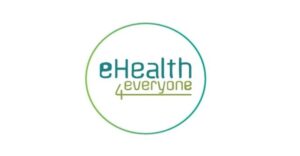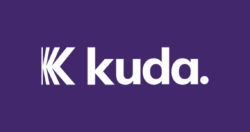
source: unsplash.com
Premiums
To get insurance, you pay a charge called an expense. Ordinarily, you pay top-notch month-to-month, quarterly, or yearly. The sum you pay as an expense might change over the long run for certain kinds of insurance.
The sum you’ll pay as a premium depends on the likelihood that you’ll make a case. Insurance companies charge higher premiums to individuals they believe are bound to make a case.
By and large, the sum you pay as a premium depends upon variables; for example,
- the sort of insurance
- Consist of your age
- The sex
- Your clinical history forever and medical coverage
- the worth of the merchandise safeguarded for home insurance
- the sort of vehicle you drive for vehicle insurance.
- How much inclusion do you really want?
- your deductible
- Your case history
- the sum you owe for credit security insurance
At the point when you pay premiums, your insurance organization consents to pay a specific measure of cash for any misfortune or harm that your strategy covers.
Effect of your credit score on premiums
At the point when you get vehicle or home insurance, an insurance organization can charge higher premiums depending on your FICO assessment.
A few territories have guidelines that prohibit the utilization of credit reports and FICO ratings in deciding insurance premiums for particular sorts of insurance.
These territories are:
- Alberta: vehicle insurance
- Ontario: vehicle insurance
Newfoundland and Labrador: home and vehicle insurance
The Insurance Bureau of Canada (IBC) addresses home and vehicle insurance companies in Canada. They give principles to ensure shoppers when safety net providers decide to utilize credit data.
Insurance companies consent to:
- Demand your assent prior to gathering and utilizing your credit data.
- Instruct you concerning your entitlement to quit delivering credit data.
instruct you regarding the results of quitting delivering credit data (for instance, you may not meet all requirements for the safety net provider’s best rate or limits, assuming you have a decent credit report). To confirm that your insurance organization is permitted to gather and utilize your credit data while deciding your inclusion and premiums, contact your common or regional insurance controller.
Hazard
Hazard is the probability that a protected occasion will occur while your strategy is basically in place. For instance, in the event that you have a past filled with clinical issues, you might pay higher extra security premiums than somebody who has not. For instance, assuming you have a few mishaps on your driving record, you might pay higher vehicle insurance premiums than somebody who has none.
Deductibles
Wellbeing, dental, home, and vehicle insurance arrangements might necessitate that you pay a deductible. A deductible is how much you agree to pay before your insurance organization pays the rest. The higher your deductible, the less you might pay in premiums. For instance, on the off chance that you make a case for $2,000 yet have a $500 deductible, your insurance will just cover $1,500 of your case.
Rejections
Rejections are things that your insurance strategy doesn’t cover.
For instance:
- Some health care coverage arrangements might bar specific ailments you had before you applied.
- A movement insurance strategy might prohibit claims made if you travel to a high-danger country.
- A home insurance strategy might bar claims for certain kinds of water damage.
- A MasterCard balance insurance strategy might bar claims for certain kinds of ailments.
Riders and supporters
You might have the option to purchase additional insurance at an extra expense to cover hazards that your fundamental arrangement doesn’t cover. This is known as a rider or an underwriting. Ask your insurance organization to discover what your strategy covers and doesn’t cover, and for what hazards you may require additional inclusion.
How insurance is directed
Insurance companies are directed at the government level, the commonplace level, and the regional level.
Government insurance controllers
Governmentally directed insurance companies should have a framework set up to deal with buyer grievances. They should be individuals from a nonpartisan outsider debate goal framework.
On the off chance that you hold a strategy with a governmentally controlled insurance organization, your insurance organization should give you data on:
- Instructions to submit a question
- What amount of time is needed for the interaction?
- The following stages assume the protest has not been settled.
Most insurance companies are government-owned. The national government guarantees that all government-owned insurance companies are financially strong.







